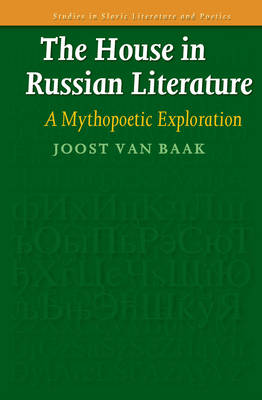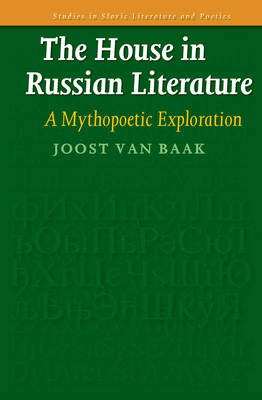
- Afhalen na 1 uur in een winkel met voorraad
- Gratis thuislevering in België vanaf € 30
- Ruim aanbod met 7 miljoen producten
- Afhalen na 1 uur in een winkel met voorraad
- Gratis thuislevering in België vanaf € 30
- Ruim aanbod met 7 miljoen producten
Zoeken
Omschrijving
The domestic theme has a tremendous anthropological, literary and cultural significance. The purpose of this book is to analyse and interpret the most important realisations and tendencies of this thematic complex in the history of Russian literature. It is the first systematic book-length exploration of the meaning and development of the House theme in Russian literature of the past 200 years. It studies the ideological, psychological and moral meanings which Russian cultural and literary tradition have invested in the house or projected on it in literary texts. Central to this study's approach is the concept of the House Myth, consisting of a set of basic fabular elements and a set of general types of House images. This House Myth provides the general point of reference from which the literary works were analyzed and compared. With the help of this analytical procedure characteristics of individual authors could be described as well as recurrent patterns and features discerned in the way Russian literature dealt with the House and its thematics, thus reflecting characteristics of Russian literary world pictures, Russian mentalities and Russian attitudes towards life. This book is of interest for students of Russian literature as well as for those interested in the House as a cultural and literary topic, in the semiotics of literature, and in relations between culture, anthropology and literature.
Specificaties
Betrokkenen
- Auteur(s):
- Uitgeverij:
Inhoud
- Aantal bladzijden:
- 528
- Taal:
- Engels
- Reeks:
- Reeksnummer:
- nr. 53
Eigenschappen
- Productcode (EAN):
- 9789042025493
- Verschijningsdatum:
- 1/01/2009
- Uitvoering:
- Hardcover
- Formaat:
- Genaaid
- Afmetingen:
- 155 mm x 234 mm
- Gewicht:
- 902 g

Alleen bij Standaard Boekhandel
+ 504 punten op je klantenkaart van Standaard Boekhandel
Beoordelingen
We publiceren alleen reviews die voldoen aan de voorwaarden voor reviews. Bekijk onze voorwaarden voor reviews.








